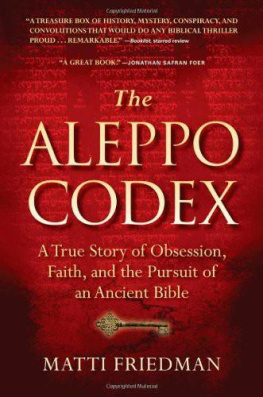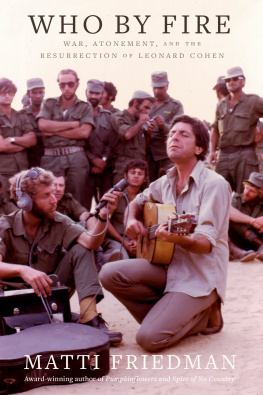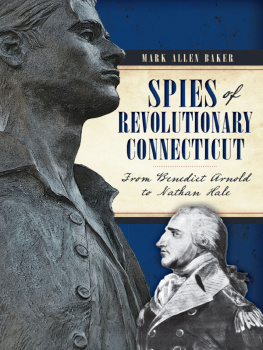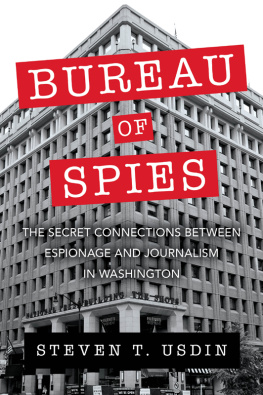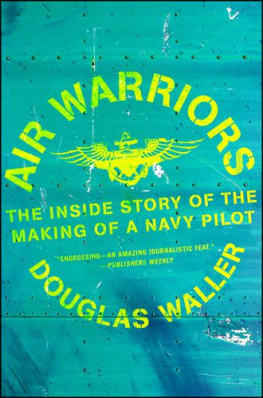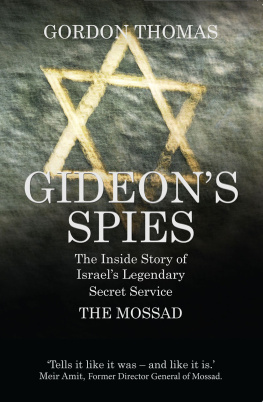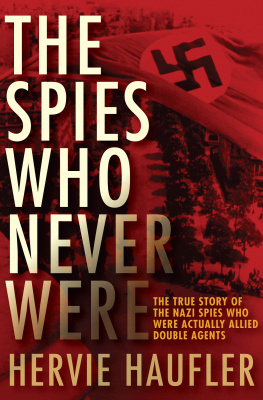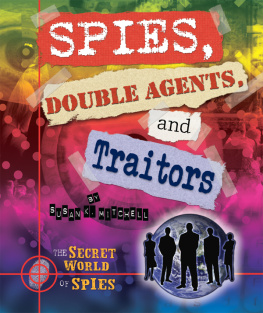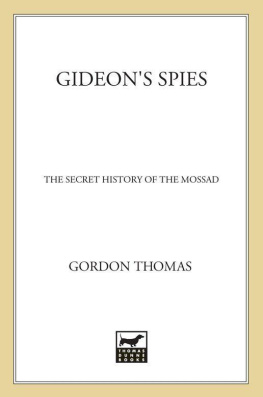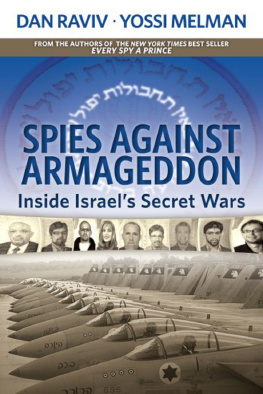
Also by Matti Friedman
Pumpkinflowers: A Soldiers Story of a Forgotten War
The Aleppo Codex: In Pursuit of One of the Worlds Most Coveted, Sacred, and Mysterious Books
SPIES OF NO COUNTRY
Israels Secret Agents at the Birth of the Mossad
Matti Friedman

ALGONQUIN BOOKS OF CHAPEL HILL 2020
Published by
Algonquin Books of Chapel Hill
Post Office Box 2225
Chapel Hill, North Carolina 27515-2225
a division of
Workman Publishing
225 Varick Street
New York, New York 10014
2019 by Matti Friedman. All rights reserved. First paperback edition, Algonquin Books of Chapel Hill, February 2020.Originally published in hardcover by Algonquin Books of Chapel Hill inMarch 2019.
Map design by Michael Newhouse.
Library of Congress Cataloging-in-Publication Data available at https://lccn.loc.gov/2018026756
eISBN 978-1-61620-941-4
The tropes of espionageduplicity, betrayal, disguise, clandestinity, secret knowledge, the bluff, the double bluff, unknowingness, bafflement, shifting identityare no more than the tropes of the life that every human being lives.
William Boyd
Contents
The Spies
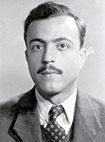
Gamliel Cohen
Alias: Yussef
Born: Damascus, Syria
Age in January 1948: 25
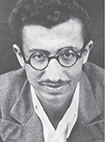
Isaac Shoshan
Alias: Abdul Karim
Born: Aleppo, Syria
Age: 23
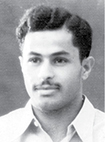
Havakuk Cohen
Alias: Ibrahim
Born: Yemen
Age: 20
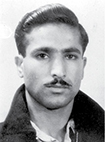
Yakuba Cohen
Alias: Jamil
Born: Jerusalem, British Palestine
Age: 23
Preface
Of the four spies at the center of this story, only Isaac is still alive. The bespectacled fighter from the alleyways of Aleppo is ninety-three as I write these lines. The suggestion that I meet him came from another pensioner of Israels intelligence services, a man I knew from working on a different story. I went to see Isaac not because Id heard of him or of the little outfit to which hed belonged at the creation of the state, and not because I planned to write this book, but only because Ive learned over years as a reporter that time spent with old spies is never time wasted.
I ended up spending many hours over several years speaking with him against a backdrop of olive-green wall tiles in his kitchen, which is on the seventh floor of an apartment block in the metropolitan sprawl south of Tel Aviv. Sometimes he crossed slowly to the stove and brewed black coffee in a little metal pot with a long handle, like the ones they used at the famous campfires. His words were measured; chattiness wasnt a quality these men respected. His memory was a sharp blade. Sometimes it seemed as if the Independence War of 1948 had just ended or was still on.
He laughed more than youd expect, every few sentences, a deep heh-heh-heh accompanied by the shaking of a head that was now mostly ears, nose, and grin. What he laughed at was seldom funny. He wasnt making light of things but expressing wonder at all hed seen. As he spoke, there were flashes of Isaac as he must have been in those dayswatchful, quick, and hungry. He spoke for the others, the ones who survived to old age and died in bed, and the ones who set off with their thin disguises into the storm of events seventy years ago and vanished.
When Isaac first arrived at a vegetable market in Tel Aviv in 1942, a penniless Arabic-speaking teenager squatting on the ground with a crate of peppers, he could have remained there. Many people have arrived at such a market and stayed forever, like my great-grandfather, who sold oranges from a cart on the Lower East Side of Manhattan. But that didnt happen to Isaac. A freak tide lifted him up and carried him away. He could have ended his life at twenty-three among dunes with a bullet in his head, like some of his friends, or hanging in a prison yard, leaving the barest memory of a person. But he slipped through. He could have evaded capture only to have the Jewish state destroyed at its birth in 1948. But that didnt happen either, and here we were in that state, our state, sitting at Isaacs kitchen table.
Espionage, John le Carr once observed, is the secret theater of our society. Countries have cover stories and hidden selves, just like their spies, and our clandestine basements conceal insights into the world aboveground. Beyond an affinity for tales of secret agents and double identities, this observation is why I was drawn to these men and their strange adventure. Who they are has something important to tell us about the country they helped create.
The years of my acquaintance with Isaac turned out to be the years of the great Arab collapse and the destruction of Aleppo, the city of his birth and childhood, in the Syrian civil war. We watched it happen from interview to interview. At the time of our first meeting in 2011, Aleppo was peaceful and only the synagogues were empty, as they had been since Isaacs family and the citys Jews fled decades before with the great Jewish exodus from the Arab world. But soon Aleppos churches were empty and many of the mosques, and much of the great Arab metropolis were in ruins.
We saw people making desperate escapes across the Mediterranean, washing up on Greek beaches, trudging inland with their packs and babies. Throughout the Middle East, the Christians, Zoroastrians, Mandaeans, and Yazidis were going or gone, as well as Sunni Muslims who once lived among Shiites, and Shiites who once lived among Sunnis, and people who think or act differently and dont have a tribe that can protect them. The hatred of people who arent like you, the idea that something will be solved if only such people can be made to disappearthis sometimes starts with Jews but tends not to end there.
One of my conversations with Isaac took place not in his kitchen but at a mall in his neighborhood, where much of the population has roots in the Islamic world, like Isaac, and like half of the Jews in Israel. On the top floor was a video arcade with flashing blue lights, electronic explosions, and crazed parents driven here by summer vacation and the unbearable stickiness outside. The McDonalds was full, and so was a plastic playground in the atrium. At a shop called Aphrodite, scarlet bras were on sale. A woman in orange-rimmed glasses contemplated a lotto form.
The children of the Jewish quarters of Tunis and Algiers were here in Ray-Bans and running shoes. The Jews of Mosul in northern Iraq were also herenot in Islamic State ditches with their neighbors the Yazidis, but drinking lattes in the air-conditioning, eating kosher McNuggets as their kids howled in Hebrew on the trampolines. These were Israelis, but not the kibbutz pioneers of the old Zionist imagination, orphaned children of Europe. These were people from the Islamic world, in the Islamic world, their lives entwined with the fate of the Islamic world, like the lives of their grandparents grandparents. This was Israel, but an Israel not visible in the way the country is usually described.
Next page

